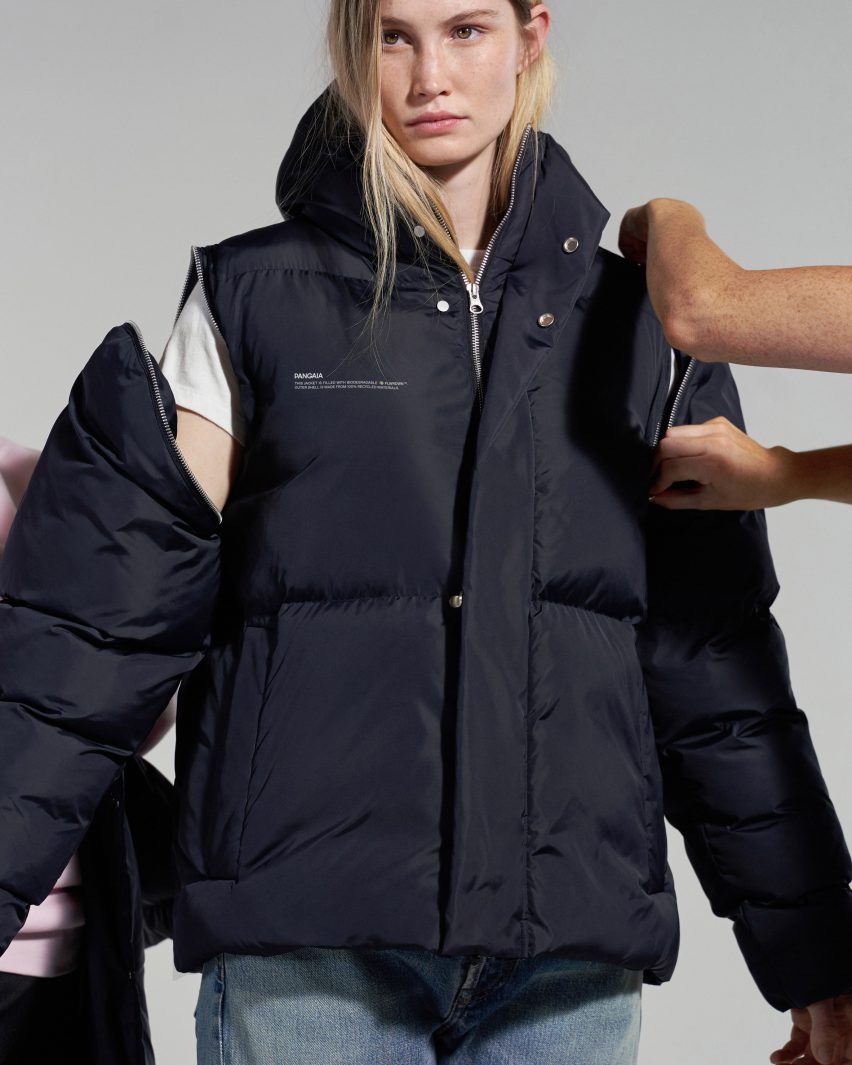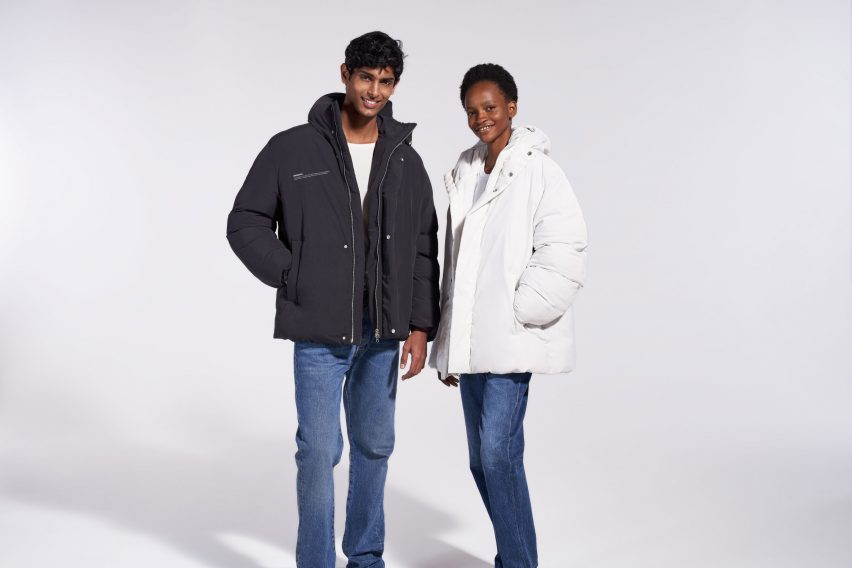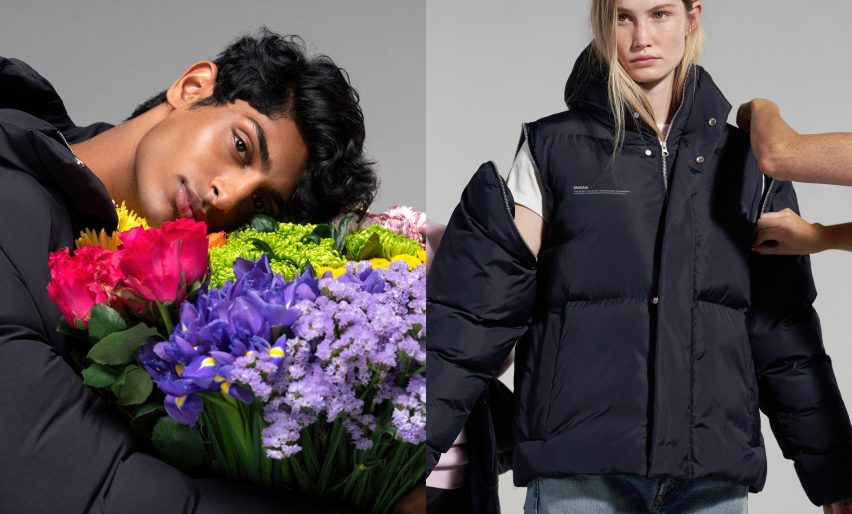
Pangaia's puffer jackets are filled with wildflowers rather than down
US clothing brand Pangaia has released a puffer coat, whose filling is made with flowers in a bid to offer a cruelty-free alternative to duck or goose down.
The stuffing, called Flower Down, was created over 10 years of research and development and combines wildflowers with an aerogel and a biopolymer to create a durable thermal insulation material.
This is contained in a quilted shell made from recycled polyester, which is rendered in classic black, white or navy.

"We use a type of wildflower that is easy to find and has a particular fibrous quality," explained Dr. Amanda Parkes, Pangaia's chief innovation officer.
"The flowers we use are grown, but not exactly farmed, as the process also involves ecosystem recovery and preservation," she continued.
"These regenerative agricultural practices help to preserve groundwater as they doesn't require external irrigation, and through habitat restoration they also help to conserve a species of local butterflies."

Once shredded, the flowers are combined with the biopolymer, which is made from vegetable waste, as well as with a patented aerogel system – a sort of porous solid foam.
"This helps the microstructure of the flower-down jacket to be water repellant and to increase thermal insulation. The aerogel we use is non-toxic and ultra-light," Parkes told Dezeen.

Crucially, unlike the fossil fuel-based substitutes such as polyester and rayon which manufacturers commonly default to in vegan winter jackets, according to the company, Pangaia's version is also biodegradable.
"All three elements within its composition will decompose without the need for a specific after process or pre-treament," claimed Parkes. "Specific enzymes or bacteria can be added to speed up the process but it's not necessary."

Pangaia is a direct-to-consumer material science company, which has previously created a collection of basics including T-shirts, sweatpants and hoodies made with seaweed fibre and botanical dyes derived from food waste.
"The future of creating a sustainable industry involves using existing natural materials, like agricultural waste, that are augmented by scientific and technology processes," said Parkes.
"We want to bring an entirely new material library into commercial reality."

Elsewhere, manufacturers have focused on making the exterior shell of outerwear biodegradable rather than its filling, as in the synthetic spider silk jacket created by Spiber for The North Face Japan.
London-based start-up Vollebak, meanwhile, has created a jacket that uses graphene to store and conduct the wearer's body heat.